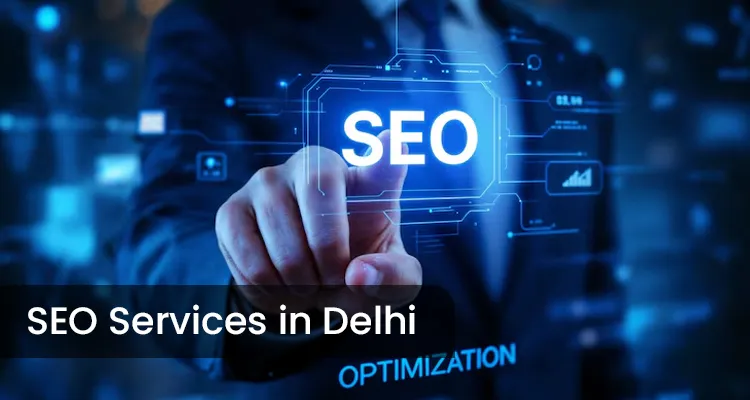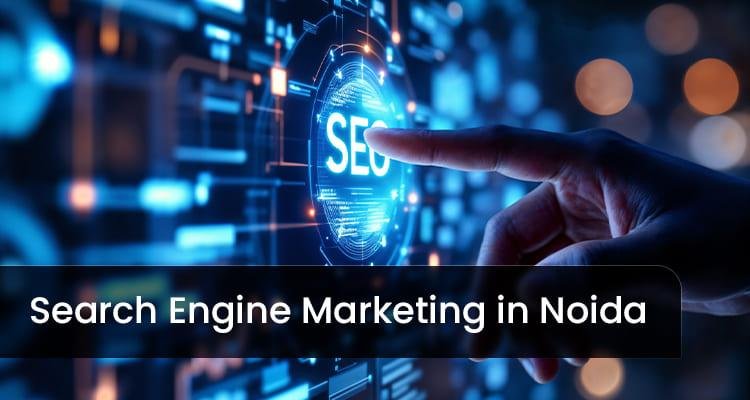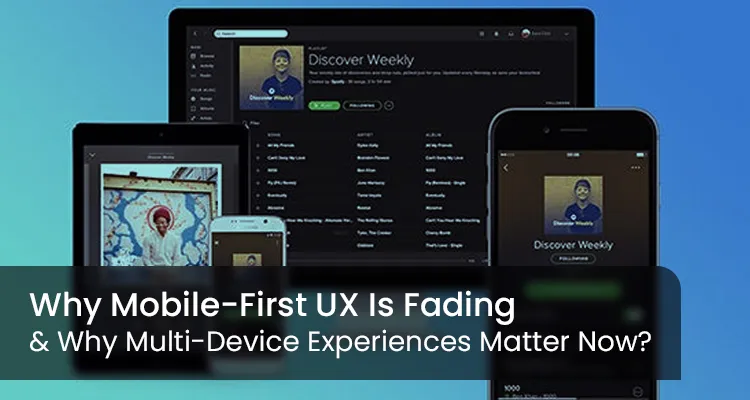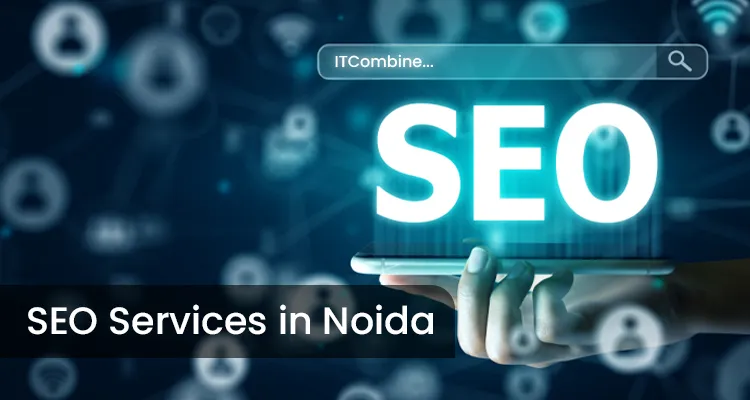Top Tech Trends Shaping the Future of IT Services in 2025

The IT services industry is undergoing a dramatic transformation, driven by technological advancements, evolving customer expectations, and new business models. As we approach 2025, Tech Trends Shaping the Future of IT Services is being defined by cutting-edge technologies such as artificial intelligence (AI), machine learning (ML), 5G connectivity, and cloud computing. In this article, we will explore the top tech trends shaping the future of IT services, offering insights into how businesses can leverage these innovations to stay ahead of the curve.
1. Artificial Intelligence and Machine Learning
Artificial Intelligence (AI) and Machine Learning (ML) are no longer just buzzwords – they are revolutionizing the IT services landscape. By 2025, AI and ML will play an even more significant role in automating processes, improving efficiency, and providing personalized experiences for clients.
AI-powered chatbots and virtual assistants are already commonplace in customer service, but their functionality will continue to improve. These intelligent systems will be able to handle more complex tasks, offering seamless, 24/7 support. For businesses in IT services, AI will improve operational efficiency by automating repetitive tasks like data entry, troubleshooting, and predictive maintenance.
Moreover, machine learning algorithms will enable IT services providers to analyze vast amounts of data and extract actionable insights. This will help businesses make data-driven decisions, optimize processes, and even predict future trends, enabling them to stay one step ahead of their competitors.
2. 5G Connectivity
The advent of 5G technology is expected to revolutionize industries, including IT services. With significantly faster download speeds, reduced latency, and enhanced network reliability, 5G will enable IT services companies to offer more innovative solutions.
For example, cloud-based applications will run more smoothly with 5G, enabling real-time collaboration and faster data transfer. This will enhance the experience for clients who rely on remote work and collaboration tools. Additionally, edge computing, which allows data processing closer to the data source, will thrive with the ultra-low latency of 5G networks. This will provide faster processing speeds, reduce network congestion, and support IoT devices more effectively.
As 5G technology becomes more widely adopted, businesses in the IT services space will need to adapt their offerings to accommodate the higher bandwidth demands and deliver next-generation services.
3. Cloud Computing and Hybrid Cloud Solutions
Cloud computing has already transformed the way businesses manage their IT infrastructure, but by 2025, the cloud will become even more integral to IT services. The hybrid cloud model, which combines public and private clouds, is gaining traction as businesses look for flexibility, scalability, and security.
By leveraging both private and public cloud resources, businesses can ensure they have the right balance of cost-effectiveness and security. For example, sensitive data can be stored in private clouds for enhanced security, while less critical workloads can be handled by public clouds. Cloud-native applications will continue to gain popularity as businesses move away from traditional, on-premise systems to cloud-based solutions that offer greater agility.
Furthermore, serverless computing will emerge as a powerful model that allows businesses to run applications without managing infrastructure, making it easier to scale and deploy applications. IT service providers will need to adopt cloud-first strategies to stay competitive and meet the demands of clients looking for scalable, flexible, and cost-efficient solutions.
4. Cybersecurity and Data Privacy
As technology continues to advance, so do the threats to cybersecurity. The rise of data breaches, ransomware attacks, and other cyber threats has made cybersecurity a top priority for businesses. In 2025, the future of IT services will be heavily influenced by innovations in cybersecurity, as organizations work to protect their data, networks, and digital assets.
Businesses will need to adopt zero-trust security models, where every user and device is considered a potential threat and must be authenticated before accessing any system. Additionally, multi-factor authentication (MFA) and biometric security will become more widespread, ensuring that only authorized personnel can access sensitive data.
IT services providers will also need to offer comprehensive data privacy solutions to comply with evolving data protection regulations like the General Data Protection Regulation (GDPR) and California Consumer Privacy Act (CCPA). As more companies move their operations to the cloud, ensuring data privacy and compliance will be critical to maintaining customer trust and avoiding costly penalties.
5. Blockchain Technology
Blockchain is no longer just the foundation of cryptocurrencies; it is rapidly gaining traction as a transformative technology for various industries, including IT services. By 2025, blockchain will become more widely adopted to ensure transparency, security, and traceability in business transactions.
In the IT services industry, blockchain will be used to improve supply chain management, identity management, and data integrity. By using blockchain, businesses can create immutable records of transactions, ensuring that data is not tampered with. This is particularly useful in sectors like healthcare, finance, and logistics, where data integrity is critical.
Additionally, smart contracts powered by blockchain technology will enable businesses to automate transactions and agreements without the need for intermediaries. This will reduce the risk of fraud, speed up processes, and increase trust between parties involved in a transaction.
6. Automation and Robotic Process Automation (RPA)
The demand for automation in IT services is growing rapidly, as businesses seek to increase operational efficiency and reduce human error. By 2025, robotic process automation (RPA) will become a cornerstone of IT service offerings.
RPA involves using software robots to automate repetitive tasks, such as data entry, report generation, and invoice processing. IT services providers will incorporate RPA into their offerings to help businesses automate back-office functions, freeing up human resources to focus on more strategic initiatives.
In addition to RPA, Intelligent Process Automation (IPA), which combines AI and RPA, will allow businesses to automate more complex tasks that require decision-making and learning. This will lead to more efficient workflows, faster turnaround times, and enhanced customer satisfaction.
7. Internet of Things (IoT)
The Internet of Things (IoT) is expanding rapidly, with billions of connected devices generating vast amounts of data. In 2025, the IoT ecosystem will continue to grow, providing businesses with new opportunities to offer innovative IT services.
IT services providers will be expected to deliver solutions that help businesses harness the power of IoT, from device management to data analysis. For example, IoT-enabled smart cities will require IT services to manage infrastructure, monitor traffic, and optimize energy consumption. In the healthcare industry, IoT devices will allow for continuous patient monitoring and predictive healthcare.
As IoT devices generate more data, IT services providers will need to offer solutions that help businesses process and analyze this information in real-time, creating actionable insights that drive decision-making.
8. Quantum Computing
While still in its early stages, quantum computing holds immense potential for transforming IT services by 2025. Quantum computing leverages quantum mechanics to solve complex problems that traditional computers struggle with, such as simulating molecular structures or optimizing supply chain logistics.
Quantum computing will have a significant impact on industries such as healthcare, finance, and cybersecurity. For example, in healthcare, quantum computers could help accelerate drug discovery by simulating molecular interactions at an unprecedented scale. In finance, quantum computing could optimize investment portfolios and risk management strategies in real-time.
IT service providers will need to stay informed about developments in quantum computing and begin preparing to offer solutions that leverage this groundbreaking technology.
9. Augmented Reality (AR) and Virtual Reality (VR)
Augmented Reality (AR) and Virtual Reality (VR) are changing the way businesses interact with customers and employees. In 2025, AR and VR will become more integrated into IT services, offering immersive experiences in training, marketing, and product design.
For example, virtual training environments will allow businesses to train employees remotely in simulated real-world scenarios, reducing costs and increasing engagement. In retail, AR-enabled mobile apps will allow customers to try products virtually before making a purchase. IT services providers will need to develop AR/VR solutions tailored to specific industries, creating unique and impactful experiences.
Conclusion: Embracing the Future of IT Services
As we move toward 2025, the IT services industry will continue to evolve, driven by Tech Trends Shaping the Future of IT Services and changing business needs. AI, machine learning, 5G, blockchain, and cybersecurity will be key drivers of innovation, offering businesses new opportunities to enhance efficiency, improve customer experiences, and unlock new revenue streams.
To stay competitive, IT services providers must embrace these Tech Trends Shaping the Future of IT Services and integrate them into their service offerings. By doing so, they can position themselves as leaders in a rapidly changing market, providing value to clients and ensuring long-term success.
Content written by-Praveen
Praveen is part of the expert content marketing team at ITCombine. He has an expertise of curating meaningful information that can be used by visitors in general. Praveen is also involved in creating Client specific stories and blogs.
Copyright © 2025 - itcombine.com.
All Rights Reserved.








